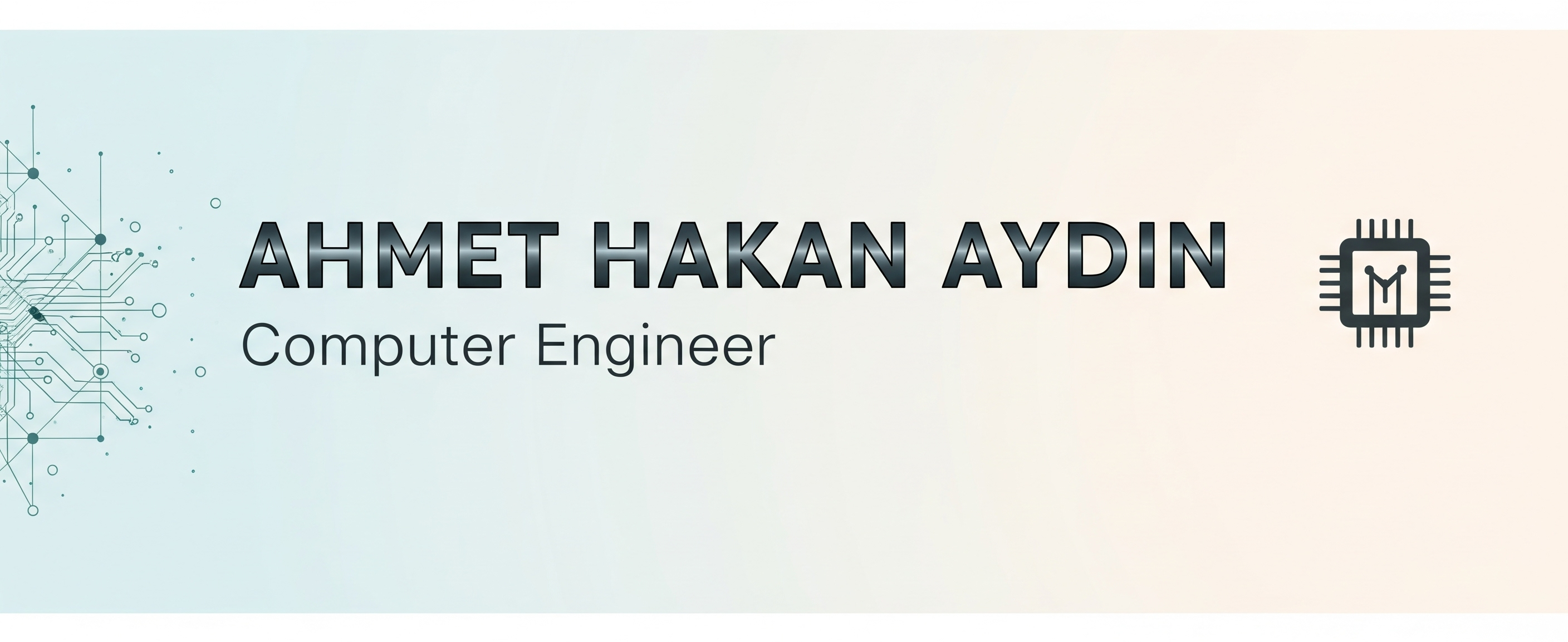Yapay Zeka Çağında Yazılım Geliştirme
Yapay zeka teknolojilerinin hızla gelişmesi, yazılım geliştirme dünyasını köklü bir şekilde dönüştürüyor. Geliştiriciler olarak bu değişimi nasıl karşılamalı ve kendimizi geleceğe nasıl hazırlamalıyız?
AI Tools Mevcut Durumu
Code Generation Tools
GitHub Copilot:
// Sadece yorum yazın, Copilot kodu tamamlasın
// Create a function to validate email address
function validateEmail(email) {
const regex = /^[^\s@]+@[^\s@]+\.[^\s@]+$/;
return regex.test(email);
}
ChatGPT/GPT-4:
- Karmaşık algorithm'ları açıklama
- Code review ve optimizasyon önerileri
- Debugging yardımı
- Dokümantasyon yazımı
Tabnine:
- Intelligent code completion
- Çoklu dil desteği
- Team learning capabilities
AI-Powered Development Platforms
Replit Ghostwriter:
# AI ile hızlı prototyping
def fibonacci(n):
# AI otomatik olarak optimize edilmiş kodu üretir
if n <= 1:
return n
return fibonacci(n-1) + fibonacci(n-2)
CodeT5 ve CodeBERT:
- Natural language to code conversion
- Code summarization
- Bug detection
Geliştiriciler İçin Fırsatlar
1. Productivity Artışı
Öncesi vs Sonrası:
❌ Manuel Approach (8 saat):
- API endpoint yazımı: 2 saat
- Test case'leri: 2 saat
- Dokümantasyon: 2 saat
- Bug fixing: 2 saat
✅ AI-Assisted Approach (4 saat):
- AI ile temel kod: 30 dakika
- Review ve customization: 1 saat
- AI-generated tests: 30 dakika
- Auto-documentation: 30 dakika
- Manual testing: 1.5 saat
2. Öğrenme Hızlandırıcısı
AI araçları ile yeni teknolojileri öğrenmek çok daha kolay:
// TypeScript öğrenirken AI'dan yardım
interface User {
id: number;
name: string;
email: string;
// AI: "Optional properties için ?"
phone?: string;
}
// AI: "Generic function example"
function getUser<T extends User>(id: number): Promise<T> {
return fetch(`/api/users/${id}`).then(res => res.json());
}
3. Code Quality Improvement
AI tools sürekli best practice'leri önerir:
// AI suggestion: Use async/await instead of callbacks
// ❌ Callback hell
getData(function(a) {
getMoreData(a, function(b) {
getEvenMoreData(b, function(c) {
// ...
});
});
});
// ✅ AI-recommended approach
async function processData() {
try {
const a = await getData();
const b = await getMoreData(a);
const c = await getEvenMoreData(b);
return c;
} catch (error) {
console.error('Error processing data:', error);
}
}
Tehditler ve Endişeler
1. Skill Devaluation
Risk alanları:
- Junior-level task'ların otomasyonu
- Boilerplate code yazımının gereksizleşmesi
- Template-based development'ın AI'a kayması
Çözüm stratejileri:
- High-level problem solving skills'e odaklanma
- System design ve architecture bilgisi
- Domain expertise geliştirme
2. Over-Dependency
// ⚠️ Tehlikeli yaklaşım
// AI'ın her önerisini sorgulamadan kabul etme
const result = aiGeneratedFunction(); // Ne yapıyor?
// ✅ Bilinçli yaklaşım
// AI output'unu anlama ve validate etme
const result = aiGeneratedFunction();
console.log('Function purpose:', getFunctionDescription());
assert(result.isValid, 'Result validation failed');
3. Security ve Privacy
AI araçları kullanırken dikkat edilmesi gerekenler:
- Sensitive data'yı AI platformlarına gönderme
- Generated code'da security vulnerability'ler
- Third-party AI service dependency
Gelecek Predictions
5 Yıl İçinde (2025-2030)
Büyük İhtimalle Gerçekleşecekler:
- AI pair programming mainstream olacak
- Code review süreçleri AI-assisted hale gelecek
- Automated testing %80+ coverage'a ulaşacak
- Natural language programming daha yaygın olacak
Değişim Örnekleri:
// 2024: Traditional approach
function createUserAPI() {
// 50+ lines of boilerplate code
}
// 2028: AI-first approach
"Create a REST API for user management with auth"
→ AI generates complete, production-ready code
10 Yıl İçinde (2030-2035)
Radikal Değişimler:
- Visual programming ile kod yazma
- AI'ın autonomous bug fixing yapması
- Real-time code optimization
- Domain-specific programming languages proliferation
Adaptation Strategies
1. Technical Skills Evolution
Öncelikli Alanlar:
🎯 High Priority:
- System Design & Architecture
- AI/ML Understanding (basic)
- Cloud & DevOps
- Security Best Practices
🔄 Medium Priority:
- UI/UX Design Principles
- Database Optimization
- Performance Tuning
- Cross-platform Development
📚 Continuous Learning:
- New frameworks & tools
- Industry domain knowledge
- Soft skills & communication
2. AI-First Development Workflow
Günlük Workflow Değişimi:
Morning Routine (AI-Enhanced):
├── 09:00 - AI briefing (code review results)
├── 09:30 - Sprint planning (AI impact analysis)
├── 10:00 - Coding (AI pair programming)
└── 12:00 - Code review (AI-suggested improvements)
Afternoon Routine:
├── 13:00 - Architecture design (AI constraints analysis)
├── 15:00 - Testing (AI-generated test cases)
├── 16:00 - Documentation (AI auto-generation)
└── 17:00 - Planning (AI sprint predictions)
3. Skill Portfolio Diversification
T-Shaped Developer Model:
Broad Knowledge (Horizontal)
├── AI/ML Basics
├── Cloud Platforms
├── DevOps/CI-CD
├── Security
└── Business Domain
│
Deep Expertise (Vertical)
├── Frontend/Backend
├── System Architecture
├── Database Design
└── [Your Specialty]
Practical Tips
1. AI Tool Integration
Başlangıç seviyesi:
# VS Code extensions
- GitHub Copilot
- TabNine
- IntelliCode
# CLI tools
npm install -g @aider/aider # AI pair programmer
pip install code-review-ai # Automated code review
İleri seviye:
# Custom AI workflow
def ai_assisted_development():
# 1. Generate initial code with AI
code = ai.generate_code(requirements)
# 2. Human review and modification
reviewed_code = human_review(code)
# 3. AI-powered testing
tests = ai.generate_tests(reviewed_code)
# 4. Automated optimization
optimized = ai.optimize_performance(reviewed_code)
return optimized
2. Learning Resources
AI & Development:
- Fast.ai - Practical AI course
- Elements of AI - AI basics
- Coursera ML - Technical depth
Future Skills:
- System design interviews
- Cloud architecture patterns
- Microservices design patterns
Ethical Considerations
1. AI-Generated Code Ownership
Soru işaretleri:
- AI'ın ürettiği kodun telif hakları kime ait?
- Open source license'ları nasıl etkilenir?
- Commercial use limitasyonları var mı?
2. Job Displacement
Gerçekçi yaklaşım:
- Junior developer pozisyonları azalabilir
- Senior developer'ların rolü değişecek
- Yeni job category'leri oluşacak (AI trainer, prompt engineer)
Sonuç ve Öneriler
Kısa Vadeli Eylem Planı (3-6 ay)
AI tools'u deneyimleme:
- GitHub Copilot'u günlük işlerde kullanma
- ChatGPT ile kod review yapma
- AI-generated test'leri değerlendirme
Temel AI bilgisi:
- Machine learning basics
- Prompt engineering
- AI limitation'larını anlama
Workflow adaptation:
- AI-first development approach
- Code quality metrics tracking
- Productivity measurement
Uzun Vadeli Vizyon (1-3 yıl)
Deep specialization:
- Belirli domain'de expertise
- System architecture skills
- Business understanding
Leadership development:
- AI tool evaluation
- Team AI adoption
- Strategy development
Continuous adaptation:
- New tool evaluation
- Trend tracking
- Community involvement
Son söz: AI yazılım geliştirmeyi yok etmeyecek, transform edecek. Bu dönüşümün parçası olmak için proaktif adımlar atmalı ve sürekli öğrenmeye odaklanmalıyız.
Siz AI araçlarını nasıl kullanıyorsunuz? Deneyimlerinizi ve endişelerinizi yorumlarda paylaşalım!

